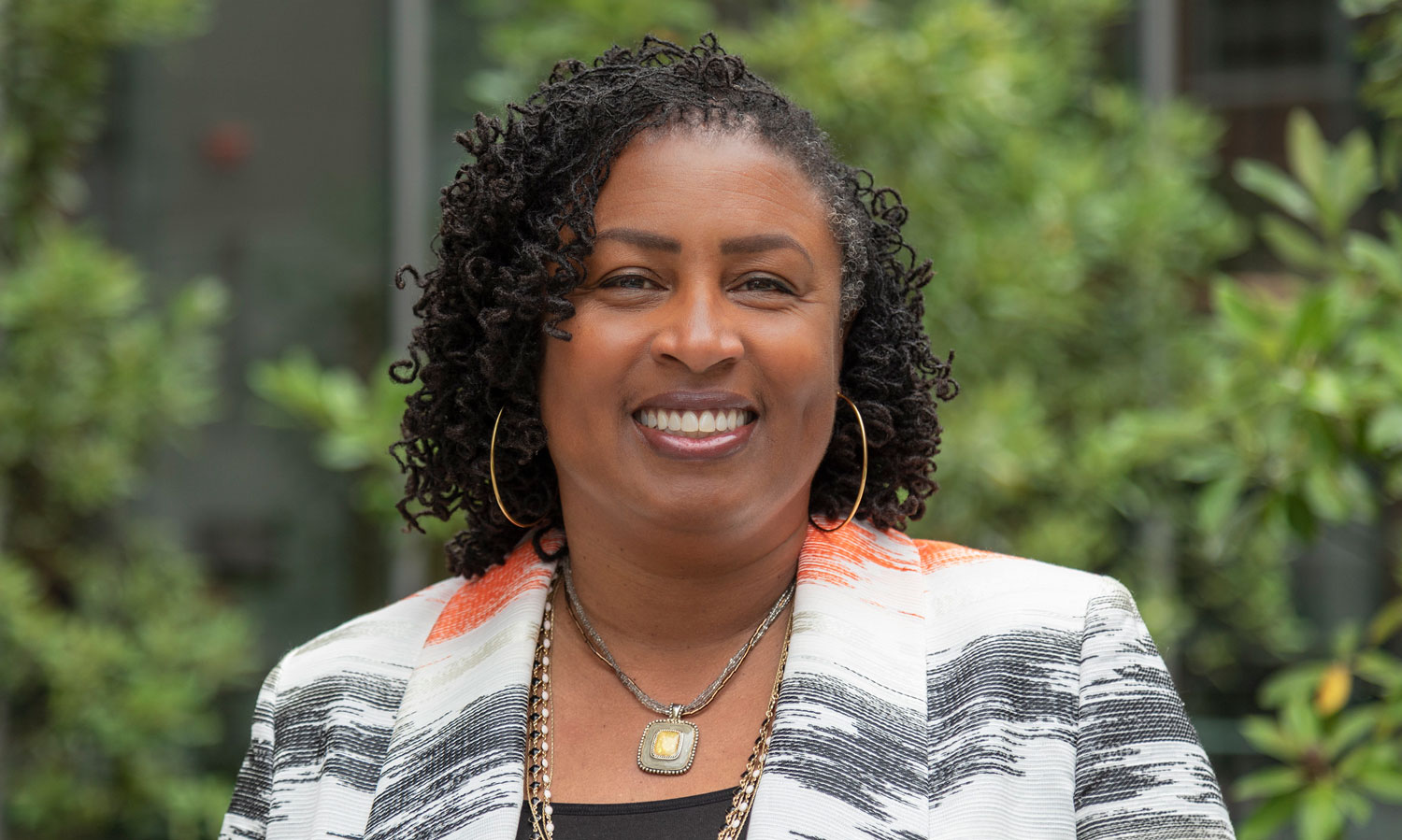VCU Engineering professor to lead National Science Foundation’s Division of Undergraduate Education

The National Science Foundation (NSF) has appointed Rosalyn Hobson Hargraves, Ph.D., to be its director of the Division of Undergraduate Education.
Hargraves is a professor of electrical and computer engineering in VCU’s College of Engineering. Over the years, she has also worked closely with VCU’s School of Education and is a recognized leader in advancing equity, excellence and inclusion in STEM education.
Hargraves’ NSF appointment took effect Aug. 1. She will continue on the VCU faculty while serving at the NSF for up to four years.
As the NSF’s principal spokesperson and expert in undergraduate education research, Hargraves will work to advance the division’s mission to “promote excellence in undergraduate science, technology, engineering, and mathematics (STEM) education for all students” at two-year and four-year institutions.
Hargraves joined VCU’s College of Engineering in 1997 and rose steadily, serving as VCU Engineering’s associate dean of graduate studies from 2007-2012. She has also held a number of university-level leadership positions, including as director of an international partnership between VCU and South Africa’s University of KwaZulu Natal from 2007-2013 and associate vice president in the Division for Inclusive Excellence from 2017-2020. Hargraves served as an American Association for the Advancement of Science (AAAS) Diplomacy Fellow in the U.S. Agency for International Development in 2003-2004 and as an American Council on Education Fellow in the Office of the President and Office of the Provost at William & Mary in 2019-2020.
She has also been deeply engaged in the community, as reflected in her service as a trustee of the Richmond Memorial Health Foundation.
In 2015, Hargraves received VCU’s Presidential Award for Community Multicultural Enrichment and the Riese-Melton Award, the university’s highest recognition for contributions to diversity efforts.
“Dr. Hargraves’ appointment to the NSF speaks to her exemplary skill as a scientist and educator dedicated to diversity, equity and inclusion. Her tireless work across disciplines to promote STEM education encourages many to stretch beyond perceived boundaries to educate and mentor VCU’s talented students. I’m pleased that we’re colleagues and am delighted that she will lead the NSF’s division of undergraduate education,” said VCU president Michael W. Rao, Ph.D.
Hargraves holds a B.S., M.S. and Ph.D. in electrical engineering from the University of Virginia. She is author of many refereed publications on biomedical signal and image processing as well as artificial neural network applications and holds two patents for her work in this area. She has also led programs and research to advance equity and access in STEM education and improve the graduation rates of VCU’s African-American, Hispanic-American and Native-American STEM students.
“Dr. Hargraves is an outstanding educator and role model,” said Barbara D Boyan, Ph.D., the Alice T. and William H. Goodwin, Jr. Dean of VCU Engineering. “She has been instrumental in achieving recognition for VCU through its NSF-sponsored ADVANCE-IT grant, which is focused on helping the institution overcome its immunity to change with respect to recruiting diverse women faculty and fostering their career development. I have come to rely on her leadership in helping VCU Engineering to achieve our goal of educating students who are committed not only to learning to be technically skilled engineers but also to making the world a better place for all of us.”
Hargraves noted that her NSF appointment comes as “two inflection points” are poised to shape the future of undergraduate education in the U.S.
The first is the aftermath of COVID-19, which left many colleges and universities with sharp enrollment declines, even as “the need and the demand for a skilled technical, scientific and engineering workforce is growing,” Hargraves said. The pandemic gave rise to new, often technology-based, innovative ways to facilitate student learning and build community, and “we must take what we’ve learned about undergraduate STEM education over the past 18 months and use it to advance the field,” she said.
The second, she said, is “a broadened focus on addressing racial and social inequities in our nation, in the aftermath of the deaths of George Floyd and Breonna Taylor.” For some, she said, “that awakening and that awareness may be newfound and others have worked in this area for decades. The result is a larger group of advocates working to address racial inequities and broadening participation in STEM undergraduate education.”
Both will be top-of-mind as Hargraves steps into her new role.
“As educators, we are committed to maintaining our global leadership in providing a world-class STEM undergraduate education to all of our students,” she said. “We must be attuned to the diverse needs of our students and the longstanding disparities in STEM fields and be willing to address those issues, thus ensuring accessibility and inclusivity in STEM education. As scholars and researchers, we must continue to advance the frontiers of STEM education research, foster innovation and inspire and prepare that next generation of skilled STEM professionals. I’m excited about this work and am looking forward to advancing the mission and goals of the National Science Foundation and the Division of Undergraduate Education.”
Categories Electrical & Computer Engineering, Faculty AwardsTagged Barbara D. Boyan, Health and Medicine, National Science Foundation, Rosalyn Hobson Hargraves
